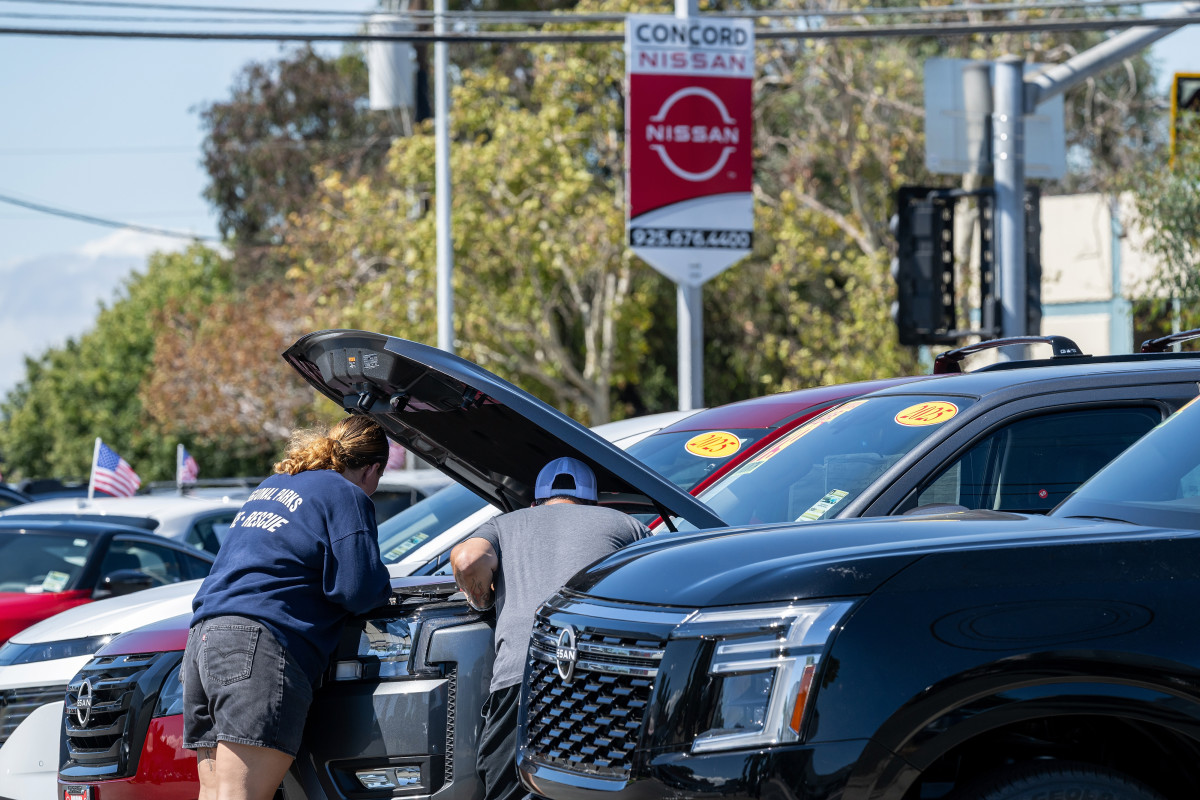Manage your account
EV & Future Tech
Classic & Collector
Deals & Buying Guides
Ownership
Safety & Recalls
Policy & Environment
New Vehicles & Reviews
Auto Shows
General
People & Culture
…
Whether you’ve spent way too much time browsing the inventory on your local dealers’ websites or spent hours finding out what color paint your next car or dream cars look good in on the configurator, it hurts to know that new cars remain far out of reach for most buyers.
According to data from the experts over at Edmunds, the MSRP of the average new car in the U.S. is at a whopping $50,469 in August 2025, a 2.6% increase from the same month in 2024. However, the average transaction price, the price where dealers and buyers agree on, is at $48,365, a 0.8% increase from the previous month and a 1.9% year-over-year increase.
Although data like this encourages some potential buyers to keep their current cars for a little bit longer, some buyers bite the bullet and finance their new cars. However, a new report from the Consumer Federation of America shows that this concerning trend of unaffordability and lending could bubble up into a bad situation that we haven’t seen in a generation.
CFA Director of Consumer Protection Erin Witte and CFA senior fellow Tara Mikkilineni caution in their new report that the auto lending industry is reaching a critical point. Borrowers are experiencing delinquencies and defaults at a rate worse than those seen before the COVID-19 pandemic and more comparable to those in the years just before the 2008 economic crisis.
According to the report, American auto buyers currently owe more than $1.66 trillion on their loans, a situation that could only worsen as federal watchdogs like the Consumer Financial Protection Bureau (CFPB) and the Federal Trade Commission (FTC) reduce their oversight and enforcement of predatory practices in the auto market due to cuts and dismantling.
According to CFPB data cited by the CFA, complaints received by the CFPB regarding a vehicle loan or lease have ballooned from 879 in calendar year 2020 to 3,138 in calendar year 2024.
“Families are currently in an economic pressure cooker, and expensive car loans are rapidly jeopardizing their ability to avoid disastrous outcomes like delinquency and repossession,” Witte said in a statement. “Americans deserve an auto marketplace that is fair and affordable, but that will not happen until we can get rid of some of the worst abuses by dealers and lenders that make the car buying experience unnecessarily painful and expensive.”
According to the report, some of the abuses highlighted by Witte and Mikkilineni include a lack of full price transparency from dealerships, excessive add-ons, and interest rate markups that can inflate loan costs for many vulnerable consumers, especially those with lower credit scores. Both the FTC and the CFPB have taken steps to combat these predatory practices in auto financing, highlighting the numerous challenges that consumers face throughout the car-buying experience.
Ultimately, this means that buyers are facing car loans at an inflated rate that could send personal finance personalities like Dave Ramsay and Caleb Hammer into a panicked state. According to the report, the average monthly car note that buyers pay in the United States is a whopping $745, with the average loan financing close to $41,000. To make matters worse, nearly 20% of buyers are dealing with payments topping $1,000 a month.
Additionally, buyers are also stretching their loan terms over periods that have not been seen since the onset of the 2008 financial crisis. Although this practice could help buyers lower their monthly payments, it has left them stuck with their cars for longer. Per the CFA, nearly 20%, or one-in-five buyers, have stretched out their loan terms over the course of seven years, with some even going as far as an eight-year loan.
Buyers are also defaulting on their loans at a rate not seen since 2008, surpassing the rates observed during the COVID-19 pandemic. An analysis from the New York Fed’s consumer credit panel, cited by the CFA, found that in 2024, buyers with above-average credit scores (620-679) were twice as likely to fall behind on payments compared to pre-pandemic levels. Furthermore, repossessions increased by 43% from 2022 to 2024, the highest rates since 2009.
This report came eerily close to the Fed's decision this week. On September 17, Jerome Powell, the Chair of the Federal Reserve, cut interest rates by 25 basis points to 4% to 4.25%, the first cut since December. Although this change could affect every type of loan, from mortgages to car loans, Edmunds’s consumer insights analyst Joseph Yoon warned prior to the announcement that this won't necessarily translate into immediate savings, especially as loan terms exceed the normal 4— to 5-year period.
"Lower APR promotions that appear at the end of the year can give shoppers a psychological boost, but the fine print matters. These offers are typically limited to shorter terms — often capped at 48 or 60 months — which doesn’t necessarily ease affordability for buyers who depend on longer loan terms to keep monthly payments manageable," he said. "Saving money long-term can mean paying more month-to-month, so shoppers need to carefully weigh whether that trade-off fits within their budget."
This story was originally reported by Autoblog on Sep 23, 2025, where it first appeared in the News section. Add Autoblog as a Preferred Source by clicking here.
Car accessories
Help
About us
About our ads
Licensing
Sitemap
Follow us on
© 2025 Yahoo. All rights reserved.











